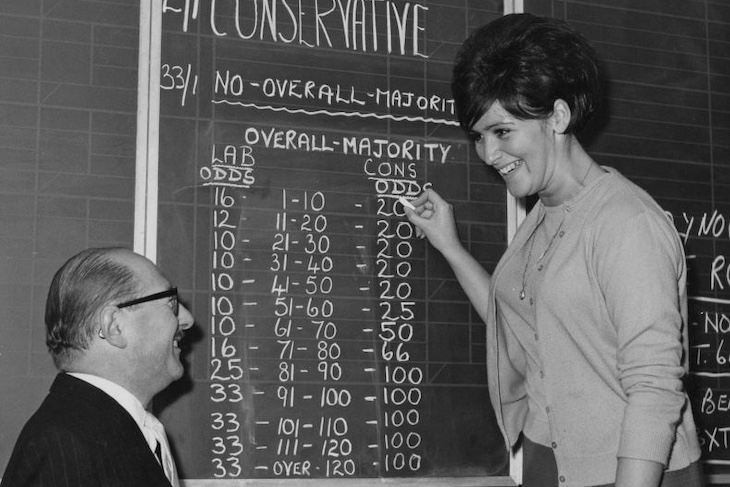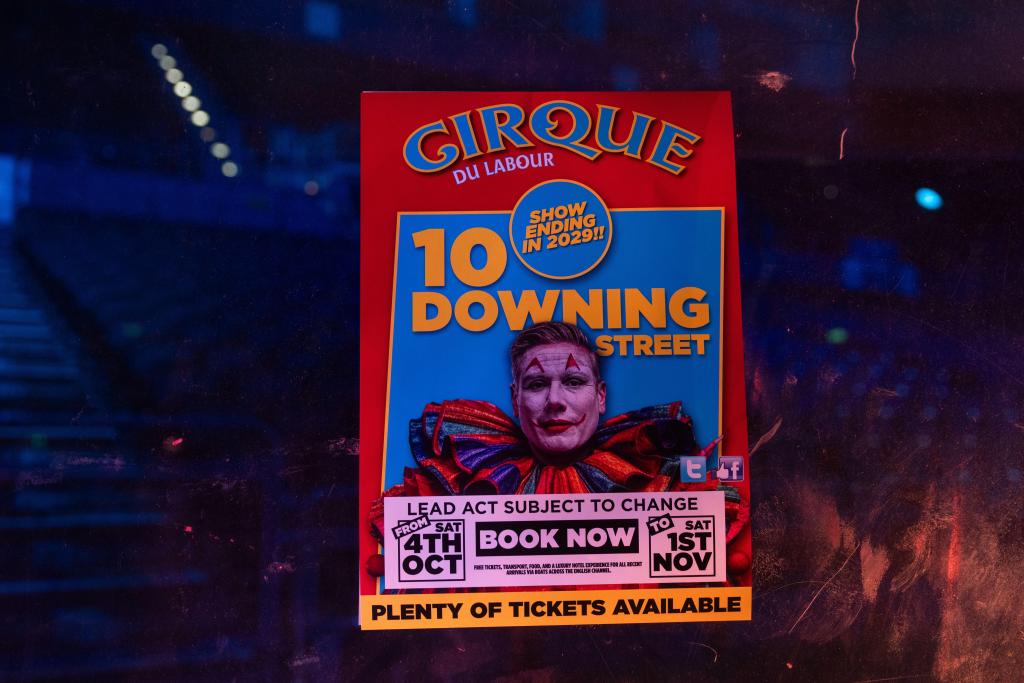If you’re going to fleece a bookies, it would be wise to ask a friend to place the bet on your behalf, or do it with cash down the local Coral. Craig Williams didn’t. The Gambling Commission is investigating the Prime Minister’s parliamentary private secretary after he placed a bet on the date of the election – three days before his boss called it. Williams’s online bet was flagged as suspicious, which, in his words, has resulted in ‘some routine inquiries’. What’s worse, he only put £100 on at 5/1. It barely seems worth it.
Political betting is not big business. Only £426,000 has been placed on the outcome of the next general election through Betfair Exchange, while around £300 million is put on the Grand National each year. There is a theory that bookmakers offer better odds on politics, giving those in Westminster easy money as a form of soft lobbying. Insiders often bet against their own party or candidate in the hope of hedging the outcome, although one former official tells me it’s considered bad luck. A member of the Remain campaign is rumoured to have put £5,000 on Leave – and irritated colleagues by appearing cheerful as the results came in.
Betting on your job doesn’t always go to plan. ‘Someone on Theresa May’s team put all their savings on a Tory majority in 2017,’ a former member of the campaign tells me. ‘They would have got pretty much the same odds for the largest party, but lost it all.’ The line between insider trading and simply informed betting is difficult to discern. A House of Lords staffer tells me he bet against a candidate in a Tory leadership campaign, knowing that there was a dossier’s worth of gossip about the politician. As expected, the prime-ministerial hopeful dropped out and the staffer was left with a healthy return.
Another friend with links to the polling industry decided to bet in line with YouGov’s whizzy multi-level regression analysis of the 2017 election, knowing it more accurately reflected sentiment within constituencies. Using the poll, he correctly bet that Canterbury would turn to Labour, something few expected. Sometimes it’s simply a question of being in the right place at the right time. I know of a German currency trader who was in the UK during the 2016 referendum. The results were coming in around 30 seconds faster via the BBC than Bloomberg and he was able to bet on the results ahead of his colleagues on the continent.
Here I should admit that I too have tried my hand at a bit of gossip-fuelled betting. Someone with close connections to the Conservatives told me that the television personality Judge Rinder was hoping to be the Tory candidate in the 2024 London mayoral election. I messaged the Ladbrokes politics team asking if they might offer me odds, received a rather tasty-looking 50/1 and duly placed my tenner. Ladbrokes soon found themselves £10 richer.
Still, novelty betting can have its advantages. Within hours of Russia’s invasion, I put £20 on Ukraine’s Eurovision entry, correctly assuming they would win. A little grubby perhaps, but when has gambling ever been an entirely moral act?







Comments